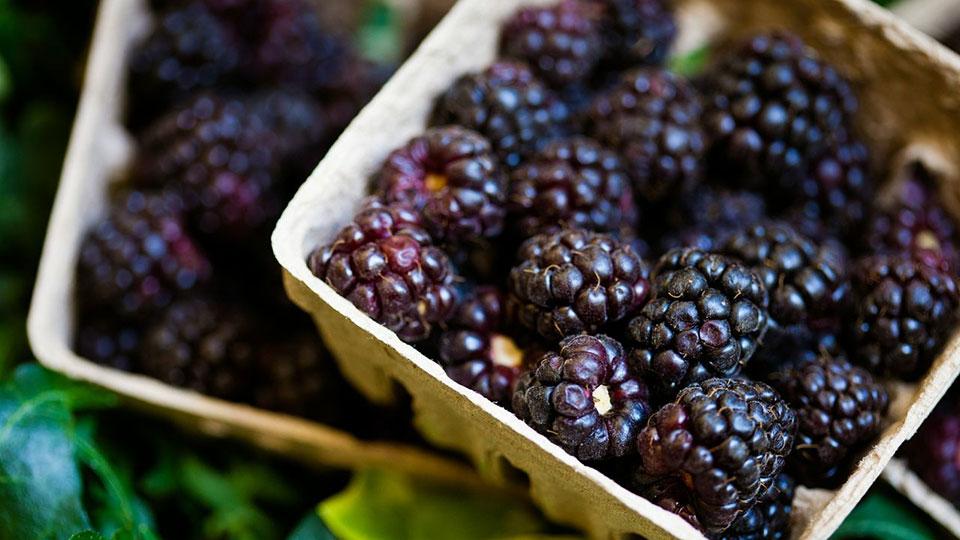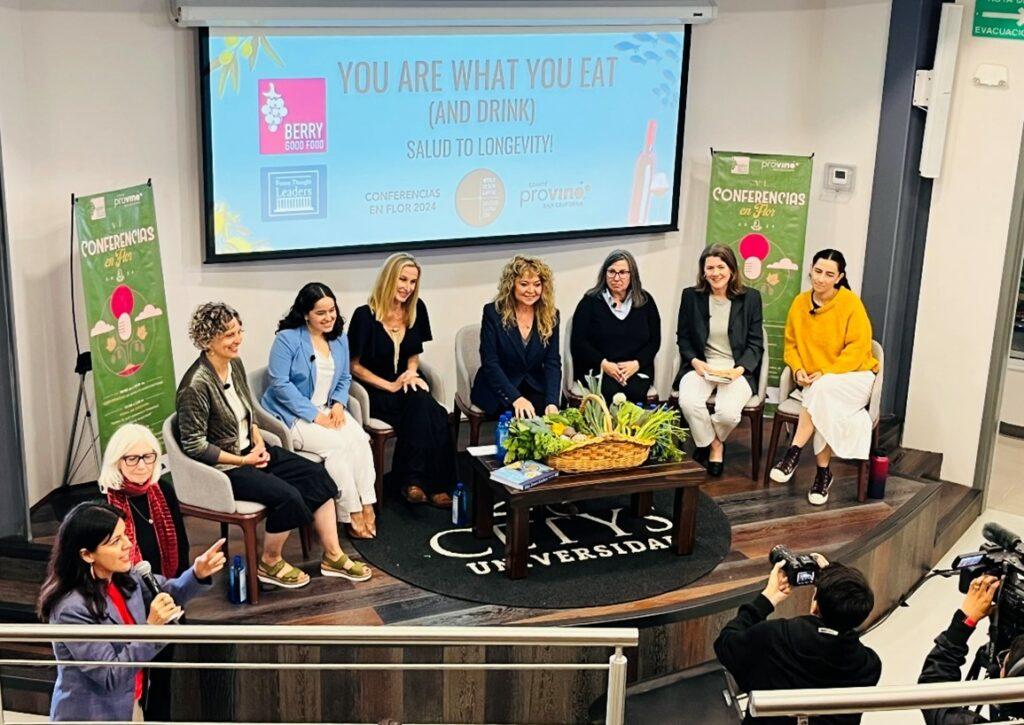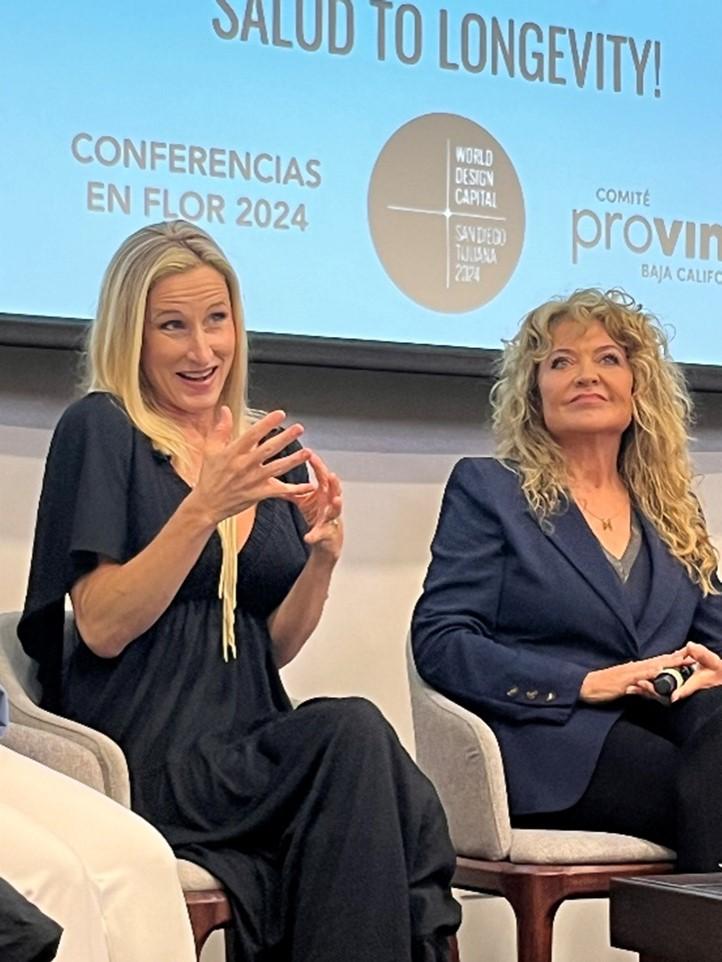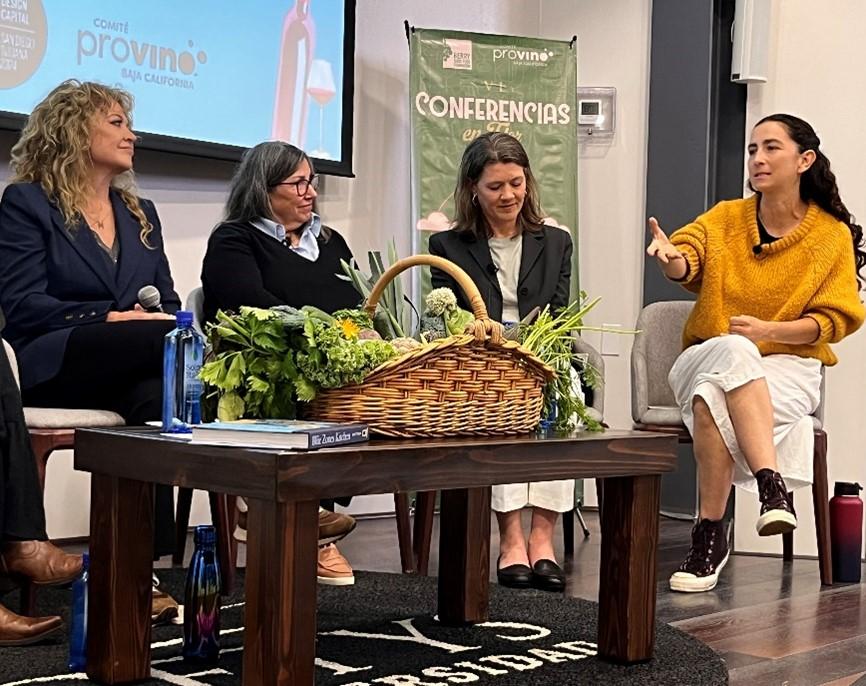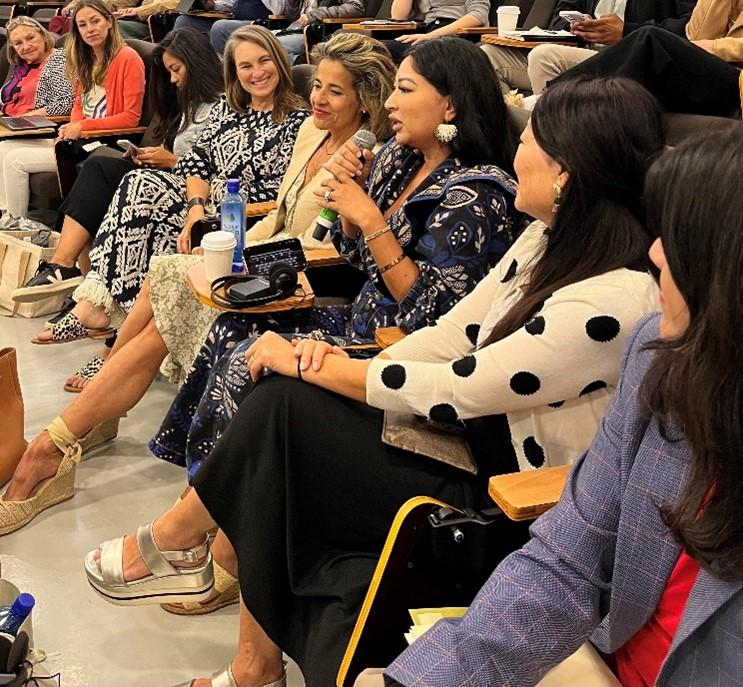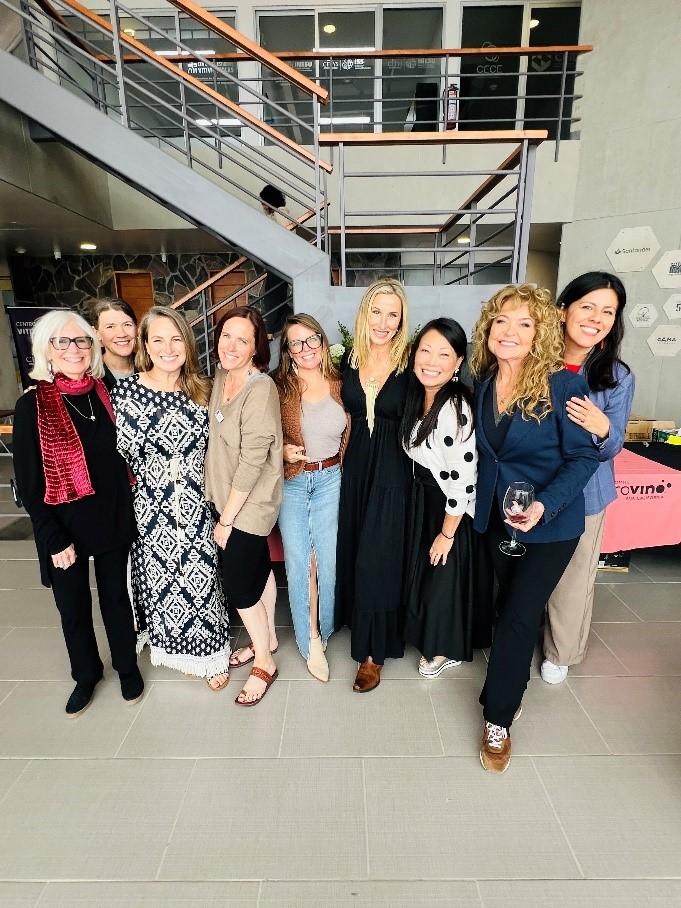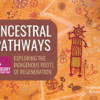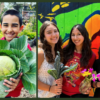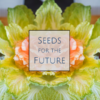On June 7, 2024, Berry Good Food founder and panel moderator Michelle Ciccarelli Lerach hosted our 13th Future Thought Leaders panel discussion entitled, “You Are What You Eat (and Drink): Salud to Longevity!” The panel included a diverse group of experts to explore how our dietary choices and food systems influence our present lives and beyond.
In conjunction with the Comitè Provino Baja California, “Conferencias en Flor” guests gathered at CETYS University in Ensenada, Baja California, Mexico. CETYS University aims to offer education that enables students to actively participate in the economic, social, and cultural development of their country, making it an ideal location for this discussion.
The day started off with our favorite Baja emcee Glenda Galarza, manager of Vena Cava, introducing each panelist. This was followed by incredible slide presentations from our panelists Alejandra Reyes, nutritionist and founder of Naturale; Charlotte Biltekoff, Ph.D., author and professor at UC Davis; Maria Benitez Cantarero, winemaker and CEO of Clos de Tres Cantos; Joy Houston, vegan chef; Jimena Rabago, viticultural agronomist and partner at NUEARTH, and Emily Yates-Doerr, Ph.D., author and associate professor at Oregon State University. These presentations were an event in themselves. The amount of time and effort that went into them was stunning and gave the audience a ton of food for thought to go into the panel discussion with. But first, we took a short break and enjoyed an educational fair hosted by Comitè Provino Baja California. Their goal is to unify, celebrate, support, and represent the winemaking community of the Baja California region. The fair consisted of various environmental and social activists from Baja California. The guests were fully engaged in their messaging, which was an incredible way to build excitement and segue into our panel discussion.
Alejandra Reyes began the discussion by saying, “you are what you eat, but also what you think.” She advocated for taking a happy, healthy, and holistic approach to food—not always being so hard on ourselves for the food choices we make. She encouraged focusing on antioxidants, balancing our diet, and paying attention to our muscle health, and thoughts. According to her, maintaining energy and emotional stability is crucial for thriving. Joy Houston shared her personal story about how she was so hard on herself— creating what she considered the best diet—dangerously overdoing veganism with only raw foods and getting very sick. She turned to meat to heal and created plant-based versions of popular animal-based foods. This inspired her to find a balanced approach to eating. Moderator Michelle Lerach noted that this aligns with Michael Pollan’s “eat food, mostly plants” approach.
As much as Charlotte Biltekoff agreed that Alejandra’s and Joy’s approaches to food were important, she shared a completely different point centered around her research findings based on moral, historical, and social perspectives. She pointed out how the welfare of the workers in our food chain is often overlooked and how in the US, we focus on the science of nutrition or the effects of food on human bodies, and chemical composition instead. As a cultural researcher, Emily Doerr-Yates related to Charlotte’s concerns about labor and production issues. She emphasized the importance of focusing on land sovereignty and indigenous food practices for healthy food, echoing a point Michelle made highlighting the value of traditional practices as “scientific proof” due to their longevity in thriving cultures.
Jimena Rabago very appropriately took us to some heavy food for thought; some that more people need to hear. She emphasized the importance of community, the potential fallout if it were to disintegrate, and the possible loss of seeds and farming know-how within a single generation. There is no doubt that her points are still hitting some of the audience members hard. She also highlighted the diverse nutritional needs and access to various types of food and growing seasons for different cultures and individuals.
Maria Benitez Cantarero, a winemaker in Baja, emphasized the importance of eco-friendly grape growing and highlighted the health benefits of moderate wine consumption, citing research from the EU. She shared the benefits of moderate wine consumption stressing that wine contains antioxidants and is good for gut health. Maria believes in the benefits of the Mediterranean diet, which includes moderate wine consumption. Pretty much everyone was ready to raise a glass to that!
These knowledgeable women had so much passion to share that they could have talked all day. As an audience member, I could have listened to them for hours. Every panelist contributed so much to the discussion, sending us home with a lot to think about in terms of our long-term well-being. Although most of us don’t want to live forever, we do want to live a long and happy life. Food is not our enemy—we need it to thrive. To ensure this, we need to do more to protect it and the people who grow it. Usually, we end our video after the panel, but the engaging conversation continued into the Q&A session, which was just as valuable. We felt it was significant enough to share, so we decided to include it too. We hope you enjoy and feel inspired by this content as much as we did!
The Berry Good Food Foundation would like to express our gratitude to our friend and BGFF Advisory Board member Yolanda Selene Walther-Meade for her translation services, Comité Provino Baja California for providing food and photography services, Solar Rain Bottled Water Co. for their generous donation of bottled water to all guests and attendees, CETYS University for providing the incredible event space, and UCTV for broadcasting our panels through their channels—helping us to reach over 15.5 million viewers and counting!
Click here to watch the panel video with Spanish subtitles.
Catch up on all of our Future Thought Leaders panel discussions here.
